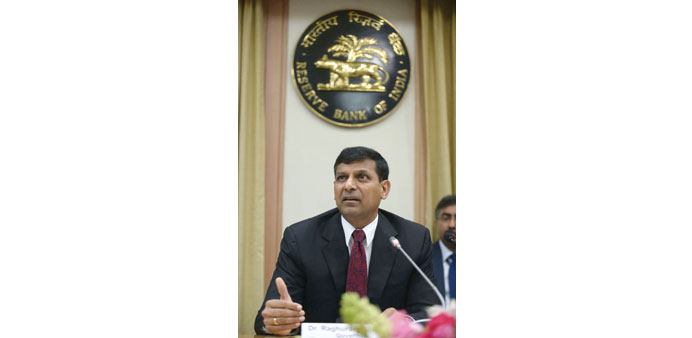AFP
New Delhi
India’s central bank governor Raghuram Rajan has said crony capitalism is emerging as a “real concern” in India and a major threat to competition and economic growth.
The term describes instances when governments give firms or individuals favourable treatment and allow conglomerates undue political influence.
“One of the greatest dangers to the growth of developing countries is... crony capitalism (which) creates oligarchies that slow down growth,” Rajan said in a lecture late Monday in Mumbai.
During the recent Indian elections that brought the right-wing Bharatiya Janata Party to power, crony capitalism emerged as “a very real concern of the public”, Rajan added.
The issue has come to the fore in Asia’s third-largest economy where critics allege many business houses have benefited from political favours – accusations strongly denied by the companies.
The upstart Aam Aadmi (Common Man) party accused India’s hugely profitable Reliance Industries of wielding undue political backroom power during this year’s campaign.
India’s Supreme Court has also waged a vigorous fight against instances of government contracts being awarded to various companies on the basis of possible collusion.
Rajan, a former chief economist of the International Monetary Fund, is known for his outspoken nature, breaking the mould of central bankers globally who are generally extremely guarded.
“By killing transparency and competition, crony capitalism is harmful to free enterprise, opportunity, and economic growth,” Rajan said. The phenomenon also harmed democracy, he added, as companies placed special interests ahead of the public good.
Rajan noted in India there was a widely held view that the country “suffers from want of a ‘few good men’ in politics”.
But groups of politicians with the intent of cleaning up the system lost badly at election time, possibly because their corrupt rivals promised more help to the underprivileged, he said.
To avoid this trap, and to strengthen India’s democracy, the country must improve public services, Rajan added, especially those targeted at the country’s hundreds of millions of poor.
Earlier this month, Rajan, who famously predicted the 2008 world financial crisis, caused waves by warning of another global markets crash as asset prices surge.

